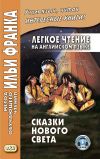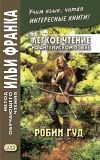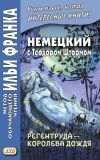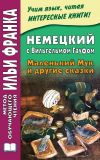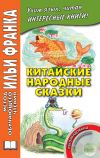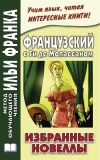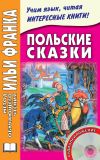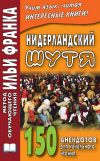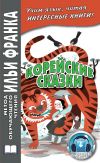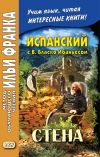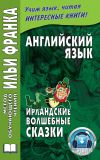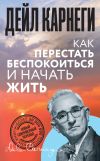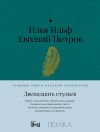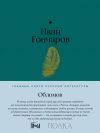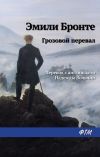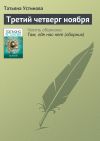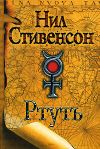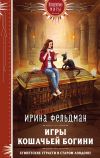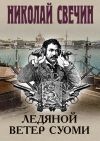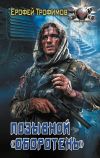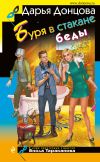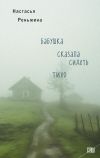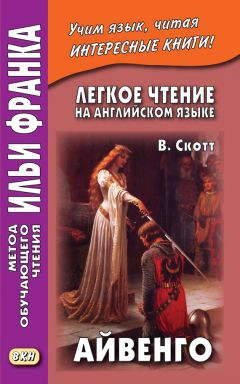
Автор книги: Вальтер Скотт
Жанр: Иностранные языки, Наука и Образование
Возрастные ограничения: +12
сообщить о неприемлемом содержимом
Текущая страница: 6 (всего у книги 17 страниц) [доступный отрывок для чтения: 6 страниц]
6
After the Black Knight had left the tournament at Ashby (после того, как Черный рыцарь покинул рыцарский турнир в Эшби), he rode north for many hours (он скакал на север много часов) through the great forest (через огромный лес). Towards evening (/ближе/ к вечеру; towards – зд. указывает на приближение к определенному моменту времени: к, около), the Knight started to look for a place to spend the night (рыцарь начал подыскивать место, где /он мог бы/ провести ночь; to look for – искать; to spend – тратить, растрачивать; проводить /время/). The sun, which the Knight had used for directions (солнце, которое рыцарь использовал для определения направления движения = солнце, по которому держал путь рыцарь), had already set behind the Derbyshire hills to his left (уже село за Дербиширскими холмами слева от него; to the left – слева; влево, налево), and it soon became too dark for him to see the forest road (и вскоре стало слишком темно, чтобы он /мог/ видеть лесную дорогу).
north [nɔ:θ], towards [tǝ’wɔ:dz], forest [‘fɔrɪst]
After the Black Knight had left the tournament at Ashby, he rode north for many hours through the great forest. Towards evening, the Knight started to look for a place to spend the night. The sun, which the Knight had used for directions, had already set behind the Derbyshire hills to his left, and it soon became too dark for him to see the forest road.
Instead, he let his horse find its own way (вместо этого он позволил своему коню искать свой собственный путь), and it took him to a little hut by a stream (и тот привел его к небольшой лачуге у ручья; hut – лачуга, хибарка, хижина; stream – речка, ручей). Near the hut were the ruins of a very old chapel (рядом с лачугой находились развалины очень старой часовни; ruin – гибель, крушение; ruins – развалины, руины), where the roof had fallen in long ago (у которой: «где» крыша провалилась давным-давно; to fall in – падать в /что-либо/; проваливаться, обрушиваться). The Knight got off his tired horse (рыцарь соскочил со своего усталого коня) and knocked on the door to the hut (и постучал в дверь той лачуги; to knock – ударять, бить, колотить; стучать, барабанить).
ruin [‘ru:ɪn], chapel [‘tʃæp(ǝ)l], tired [‘taɪǝd]
Instead, he let his horse find its own way, and it took him to a little hut by a stream. Near the hut were the ruins of a very old chapel, where the roof had fallen in long ago. The Knight got off his tired horse and knocked on the door to the hut.
“Go away, whoever you are (убирайся, кто бы ты ни был; to go away – уходить, уезжать),” said a voice from within (сказал голос изнутри /лачуги/).
“Father, I am a poor traveller (отец, я бедный странник; father – отец; священник; traveller – путешественник; скиталец; странник) who is lost in this forest (который заблудился в этом лесу; lost – потерянный, утраченный; заблудившийся; to lose – терять), and I would like to spend the night here (и я хотел бы провести ночь здесь).”
“Go away, you are interrupting my prayers (убирайся, ты прерываешь мои молитвы; to interrupt – прерывать, приостанавливать /ход, течение чего-либо/).”
whoever [hu:’evǝ], voice [vɔɪs], traveller [‘træv(ǝ)lǝ], prayer [preǝ]
“Go away, whoever you are,” said a voice from within.
“Father, I am a poor traveller who is lost in this forest, and I would like to spend the night here.”
“Go away, you are interrupting my prayers.”
“The road – the road (дорога)!” said the Knight. “Give me directions for the road, at least (дай мне указания = укажи мне, где же дорога, по крайней мере; direction – адрес /на письме и т. п./; указание, как дойти, добраться куда-либо). That is all I expect (это все, чего я ожидаю; to expect – ждать, ожидать; надеяться, предполагать).”
“The road is easy to find (дорогу легко найти). Go through the swamp (иди через болото; through – через, сквозь, по /указывает на пространственные отношения/), across the deep river (через эту глубокую реку; across – сквозь, через), and then along the top of a cliff (и затем вдоль края обрыва; top – верхушка, вершина; верхняя часть; cliff – утес, крутой обрыв)”
road [rǝʋd], swamp [swɔmp], across [ǝ’krɔs], cliff [klɪf]
“The road – the road!” said the Knight. “Give me directions for the road, at least. That is all I expect.”
“The road is easy to find. Go through the swamp, across the deep river, and then along the top of a cliff”
“A swamp (болото) – a deep river (глубокая река) – a cliff (крутой обрыв)!” exclaimed the Knight (воскликнул рыцарь). “What kind of directions are they to follow at night (что это за указания /дороги/ такие, чтобы следовать им в ночи)! Either open the door for me (или открой мне дверь), or I will knock it down myself (или я сломаю ее сам; to knock down – сбить /с ног/, свалить; ломать, сносить, разрушать)!” The Knight kicked the door violently (рыцарь ударил ногой по двери с силой; to kick – ударять ногой, давать пинок, лягать; violent – неистовый, яростный; сильный, резкий).
follow [‘fɔlǝʋ], myself [maɪ’self], violently [‘vaɪǝlǝntlɪ]
“A swamp – a deep river – a cliff!” exclaimed the Knight. “What kind of directions are they to follow at night! Either open the door for me, or I will knock it down myself!” The Knight kicked the door violently.
“Be patient (будь терпелив; patient – терпящий страдания, испытывающий страдания; терпеливый, снисходительный), be patient,” said the voice (сказал голос), and the door flew open (и дверь распахнулась; to fly open – неожиданно открываться; распахиваться). A fat monk rushed out angrily (толстый монах выбежал наружу рассерженно; to rush – бросаться, кидаться, устремляться). When he saw the big man in armour in front of his hut (когда он увидел большого мужчину в доспехах перед своей лачугой), the monk politely invited the Knight inside (монах вежливо пригласил рыцаря внутрь) and said he had been afraid that it was an outlaw (и сказал, что он боялся, что это был какой-нибудь разбойник; outlaw – лицо, объявленное вне закона; преступник, бандит).
patient [‘peɪʃ(ǝ)nt], monk [mʌŋk], politely [pǝ’laɪtlɪ], invite [ɪn’vaɪt], outlaw [‘aʋtlɔ:]
“Be patient, be patient,” said the voice, and the door flew open. A fat monk rushed out angrily. When he saw the big man in armour in front of his hut, the monk politely invited the Knight inside and said he had been afraid that it was an outlaw.
The Knight looked around inside the hut (рыцарь огляделся /вокруг/ внутри лачуги).
“You are so poor (ты настолько беден) that outlaws cannot possibly be interested in stealing from you (что грабителям нечего, наверное, воровать у тебя: «что грабители не могут быть, наверное, заинтересованы в воровстве у тебя»; to steal – воровать, красть, похищать, грабить).”
The Knight took off his helmet (рыцарь снял свой шлем), and the monk saw his thick blond hair and brave face (и монах увидел его светлые волосы и храброе лицо).
“What is your name (как вас зовут: «какое ваше имя»)?” the monk asked the Knight (монах спросил у рыцаря).
“I am known around here as the Black Knight (я известен здесь как Черный рыцарь). But some people call me the Black Sluggard (но некоторые люди называют меня Черным Бездельником).”
possibly [‘pɔsǝblɪ], stealing [‘sti:lɪŋ], sluggard [‘slʌɡǝd]
The Knight looked around inside the hut.
“You are so poor that outlaws cannot possibly be interested in stealing from you.”
The Knight took off his helmet, and the monk saw his thick blond hair and brave face.
“What is your name?” the monk asked the Knight.
“I am known around here as the Black Knight. But some people call me the Black Sluggard.”
The monk smiled at this (монах улыбнулся на это) and offered the Knight some dry bread (и предложил рыцарю немного сухого хлеба = сухарей; dry bread – хлеб без масла; сухарь) and some water from the stream (и немного воды из ручья; stream – поток, река, ручей). He told the Black Knight that as a monk (он сказал Черному рыцарю, что будучи монахом: «как монаху»), this was all he was allowed to eat (это было все, что было позволено ему есть). The Black Knight, who was very hungry (Черный рыцарь, который был очень голоден), looked down at the food (взглянул на пищу) and back at the fat monk (и снова на толстого монаха).
“It seems to me (сдается мне: «мне кажется») that you are doing rather well on this (что ты прекрасно поправляешься на этом; to do well – разг. зд. поправляться, чувствовать себя хорошо). But I think there is some better food in this hut (но мне кажется, что есть и лучшая пища в этой лачуге)!”
dry [draɪ], bread [bred], stream [stri:m], hungry [‘hʌŋɡrɪ]
The monk smiled at this and offered the Knight some dry bread and some water from the stream. He told the Black Knight that as a monk, this was all he was allowed to eat. The Black Knight, who was very hungry, looked down at the food and back at the fat monk.
“It seems to me that you are doing rather well on this. But I think there is some better food in this hut!”
The monk looked at the smile on the Knight’s face (монах взглянул на улыбку на лице рыцаря) and went to get some better food and good wine (и отправился достать немного еды получше и хорошего вина). The Black Knight started eating and drinking (Черный рыцарь начал есть и пить) while the monk watched (в то время как монах наблюдал /за ним/). After a while the Knight looked up at the monk and said (через некоторое время рыцарь взглянул на монаха и сказал), “I have spent some time in Palestine (я провел некоторое время в Палестине; to spend – тратить, расходовать; проводить /о времени/), and it is the custom there (и там есть такой обычай; custom – обычай, традиция /в масштабах одного народа, одной культуры/) that the host always eats and drinks together with his guests (что хозяин всегда ест и пьет вместе со своими гостями; host – хозяин; человек, принимающий гостей).”
watch [wɔtʃ], custom [‘kʌstǝm], together [tǝ’ɡeðǝ]
The monk looked at the smile on the Knight’s face and went to get some better food and good wine. The Black Knight started eating and drinking while the monk watched. After a while the Knight looked up at the monk and said, “I have spent some time in Palestine, and it is the custom there that the host always eats and drinks together with his guests.”
“To make you feel better (чтобы вы почувствовали себя лучше; to make – зд. приводить к определенному состоянию),” said the monk, “I will forget that I am a monk and join you (я забуду, что я монах, и присоединюсь к вам; to join – соединять, связывать; присоединяться, входить в компанию).”
“Well, you certainly are the most mysterious monk (что ж, ты действительно самый таинственный монах) I have ever met (которого я когда-либо встречал),” replied the Knight (ответил рыцарь), but soon they were happily eating (но вскоре они со счастливым видом/весело ели; happily – успешно, удачно, счастливо; со счастливым видом, выражением), drinking and singing songs together (пили и распевали песни вместе).
join [dʒɔɪn], mysterious [mɪ’stɪ(ǝ)rɪǝs], happily [‘hæpɪlɪ]
“To make you feel better,” said the monk, “I will forget that I am a monk and join you.”
“Well, you certainly are the most mysterious monk I have ever met,” replied the Knight, but soon they were happily eating, drinking and singing songs together.
7
When Cedric saw his son fall down in the tournament lists (когда Седрик увидел, что его сын упал на турнирной арене), his first instinct was to tell his servants (его первым побуждением: «инстинктом» было приказать своим слугам; instinct – инстинкт, природное чутье; интуиция; to tell – говорить, сказать; приказывать; настоятельно просить) to go and take care of Ivanhoe (пойти и позаботиться об Айвенго; care – забота, попечение; уход, присмотр). But Cedric found he was unable to speak these words (но Седрик счел, что он неспособен произнести эти слова; to find – находить, отыскивать; считать, находить; unable – неспособный) about his disinherited son in front of the crowd (о своем лишенном наследстве сыне перед толпой; to inherit – наследовать; to disinherit – лишать наследства; front – перед, передняя сторона; in front of – перед, в присутствии). Instead, he ordered his men to keep an eye on Ivanhoe (вместо этого он приказал своим слугам следить за Айвенго; to keep an eye – глаз не спускать с /кого-либо, чего-либо/; следить за) and take him to the town of Ashby (и отвезти его в город Эшби) when the tournament was over (когда турнир закончится; to be over – приходить в чей-либо дом; заканчивать(ся)).
instinct [‘ɪnstɪŋkt], unable [ʌn’eɪb(ǝ)l], order [‘ɔ:dǝ], ordered [‘ɔ:dǝd]
When Cedric saw his son fall down in the tournament lists, his first instinct was to tell his servants to go and take care of Ivanhoe. But Cedric found he was unable to speak these words about his disinherited son in front of the crowd. Instead, he ordered his men to keep an eye on Ivanhoe and take him to the town of Ashby when the tournament was over.
The servants found the bloody spot (слуги обнаружили кровавое пятно; spot – пятнышко, крапинка; пятно) where Ivanhoe had fallen (там, где Айвенго упал), but they could not find Ivanhoe himself (но они не смогли найти самого Айвенго). They were told that a rich lady from the audience (им сказали, что какая-то богатая леди из /числа/ зрителей; audience – публика; зрители) had arranged for him to be taken away from the tournament lists (распорядилась, чтобы его унесли с турнирного ристалища; to arrange – приводить в порядок; принимать меры, давать распоряжения; to take away – убирать, забирать, уносить, уводить). Cedric was angry at this news (Седрик разгневался, /услышав/ эту новость), and the discovery that Gurth had gone missing during the tournament (и то открытие, что Гурт исчез во время турнира; discovery – обнаружение, открытие; missing – недостающий, отсутствующий; пропавший без вести) made him even angrier (разгневало его еще больше: «сделало его еще более разгневанным»).
fallen [‘fɔ:lǝn], audience [‘ɔ:dɪǝns], discovery [dɪs’kʌv(ǝ)rɪ]
The servants found the bloody spot where Ivanhoe had fallen, but they could not find Ivanhoe himself. They were told that a rich lady from the audience had arranged for him to be taken away from the tournament lists. Cedric was angry at this news, and the discovery that Gurth had gone missing during the tournament made him even angrier.
He decided to return to Rotherwood that same evening (он решил вернуться в Ротервуд тем же самым вечером) together with the Lady Rowena and Athelstane (вместе с леди Ровеной и Ательстаном). It was dangerous to travel through the forest at night (было опасно путешествовать через лес ночью) as outlaws were known to attack and rob lonely travellers (так как было известно, что разбойники нападали на одиноких путешественников и грабили их/; to rob – грабить; воровать, красть; lonely – одинокий). Cedric hoped that the outlaws (Седрик надеялся, что разбойники), who were mainly poor Saxons themselves (которые сами были, большей частью, бедными саксами; mainly – главным образом, преимущественно, в основном), would not attack fellow Saxons (не станут нападать на своих соплеменников-саксов; fellow – человек, парень; товарищ, собрат).
dangerous [‘deɪndʒǝrǝs], lonely [‘lǝʋnlɪ], themselves [ðǝm’selvz]
He decided to return to Rotherwood that same evening together with the Lady Rowena and Athelstane. It was dangerous to travel through the forest at night as outlaws were known to attack and rob lonely travellers. Cedric hoped that the outlaws, who were mainly poor Saxons themselves, would not attack fellow Saxons.
When the little group had travelled through the forest for a while (когда небольшой отряд ехал по лесу уже некоторое время; group – группа, кучка; while – время, промежуток времени; for a while – на некоторое время), they came upon some mules and a litter on the road (он = отряд: «они» натолкнулся на нескольких мулов и паланкин на дороге; to come upon smb., smth. – натолкнуться на кого-либо, что-либо; litter – носилки, паланкин). Isaac was walking back and forth (Исаак расхаживал взад и вперед), wringing his hands (заламывая руки; to wring – скручивать; to wring one’s hands – заламывать руки) while his daughter sat next to the litter (в то время как его дочь сидела рядом с паланкином).
mule [mju:l], litter [‘lɪtǝ], wring [rɪŋ]
When the little group had travelled through the forest for a while, they came upon some mules and a litter on the road. Isaac was walking back and forth, wringing his hands while his daughter sat next to the litter.
Isaac quickly explained to them (Исаак быстро объяснил им) that he had paid some men to guide him (что он заплатил неким людям, чтобы те проводили его; to guide – быть проводником, вести), his daughter, and a sick friend back through the forest (его дочь и больного друга через лес; sick – больной, болезненный; нездоровый). Instead, the men had taken his money and horses (вместо этого те люди забрали его деньги и лошадей) and left them there on the road (и оставили их там, на дороге; to leave – уходить, уезжать; оставлять, покидать, бросать).
“Please allow a poor Jew to travel with you (пожалуйста, позвольте бедному еврею поехать с вами; to travel – путешествовать; ехать)!” he begged Cedric (он умолял Седрика; to beg – просить; умолять, молить).
quickly [‘kwɪklɪ], guide [ɡaɪd], beg [beɡ]
Isaac quickly explained to them that he had paid some men to guide him, his daughter, and a sick friend back through the forest. Instead, the men had taken his money and horses and left them there on the road.
“Please allow a poor Jew to travel with you!” he begged Cedric.
“We had better leave some of our servants with them (мы лучше оставим несколько наших слуг с ними) to take them to the next town (/чтобы они/ доставили их в ближайший город; next – следующий; ближайший, соседний),” Cedric said, and Athelstane agreed (сказал Седрик и Ательстан согласился).
Rebecca, however, went to Rowena and said (Ревекка, однако, подошла к Ровене и сказала), “This is not for myself (это не для меня = я прошу не за себя) but for the sake of someone very dear to many (но ради кого-то = ради человека, который очень дорог многим; sake – используется в словосочетаниях в значении цель; причина, мотив), and dear to even you (и дорог даже вам). Please, at least take the sick person in the litter with you (пожалуйста, по меньшей мере, возьмите больного в паланкине с собой).”
better [‘betǝ], leave [li:v], dear [dɪǝ], least [li:st]
“We had better leave some of our servants with them to take them to the next town,” Cedric said, and Athelstane agreed.
Rebecca, however, went to Rowena and said, “This is not for myself but for the sake of someone very dear to many, and dear to even you. Please, at least take the sick person in the litter with you.”
“The man is old and weak (этот человек стар и слаб),” Rowena said to Cedric, “the woman is young and beautiful (эта женщина молода и красива), and their friend is apparently very sick (и их друг, по-видимому, очень болен). We cannot leave them here (мы не можем оставить их здесь).”
Cedric agreed to let them travel with them (Седрик согласился позволить им ехать вместе с ними), but Athelstane added (а Ательстан добавил), “They can only come (они могут ехать /с нами/ только /в том случае/; only – только, просто; исключительно, единственно) if they travel right at the back of the group (если они поедут прямо в самом конце отряда; right – правильно, верно; точно, как раз, непосредственно), where Wamba can protect them with his wooden sword (где Вамба сможет защитить их своим деревянным мечом).”
friend [frend], apparently [ǝ’pærǝntlɪ], protect [prǝ’tekt]
“The man is old and weak,” Rowena said to Cedric, “the woman is young and beautiful, and their friend is apparently very sick. We cannot leave them here.”
Cedric agreed to let them travel with them, but Athelstane added, “They can only come if they travel right at the back of the group, where Wamba can protect them with his wooden sword.”
“I lost my weapon in the lists (я потерял свое оружие на ристалище) like so many other knights (так же, как и большинство: «так много» других рыцарей),” said Wamba, and Athelstane blushed (сказал Вамба, а Ательстан покраснел) because this had happened to him (оттого, что это случилось и с ним).
Slowly, the group continued together (медленно группа продолжила = всадники продолжили двигаться вместе) along the road in the dark (по дороге в темноте; along – вдоль, по), when they suddenly heard war-cries from every side (когда они внезапно услышали боевые кличи со всех сторон; war – война, боевые действия; cry – крик; боевой клич, лозунг; war-cry – боевой клич).
weapon [‘wepǝn], continue [kǝn’tɪnju:], heard [hǝ:d]
“I lost my weapon in the lists like so many other knights,” said Wamba, and Athelstane blushed because this had happened to him.
Slowly, the group continued together along the road in the dark, when they suddenly heard war-cries from every side.
A group of men dressed in green (группа = отряд мужчин, одетых в /одежду/ зеленого цвета; dress – платье, одежда; to dress – одевать; наряжать) rushed out from behind the trees (бросился /вперед/ из-за деревьев). Cedric bravely swung his sword at them (Седрик храбро занес свой меч над ними; to swing – качать, колебать; махать, размахивать), but his sword hit a branch over his head (но его меч ударился о ветку над /его/ головой), and he was knocked off his horse (и он был сброшен с коня) and taken prisoner (и взят в плен; prisoner – заключенный, арестант; пленник, узник; to be taken prisoner – быть взятым /попасть/ в плен). Athelstane was taken prisoner (Ательстан был взят в плен) before he could even reach for his weapon (до того, как он смог дотянуться до своего оружия; to reach – протягивать, вытягивать /особ. руку/; дотягиваться, тянуться /к чему-либо, за чем-либо/). Of the others, Wamba alone escaped (из всех остальных, только Вамба сбежал; alone – исключительно, единственно, только; to escape – бежать /из заключения/; спастись, избежать /опасности/) by quickly throwing himself off his horse (быстро спрыгнув: «бросившись» со своего коня; to throw – бросать, кидать; to throw oneself – бросаться, кидаться) and running as fast as his legs could carry him (и убежав так быстро, как /только/ ноги несли его = и удрав со всех ног; to carry – нести, носить) through the dark forest (через темный лес).
swung [swʌŋ], prisoner [‘prɪz(ǝ)nǝ], carry [‘kærɪ]
A group of men dressed in green rushed out from behind the trees. Cedric bravely swung his sword at them, but his sword hit a branch over his head, and he was knocked off his horse and taken prisoner. Athelstane was taken prisoner before he could even reach for his weapon. Of the others, Wamba alone escaped by quickly throwing himself off his horse and running as fast as his legs could carry him through the dark forest.
As he ran (пока он бежал), Wamba suddenly heard a voice near him (Вамба неожиданно услышал какой-то голос рядом с собой).
“Gurth!” he cried out when he saw his old friend (вскричал он, когда он увидел своего старого друга).
“What are you doing here (что ты здесь делаешь)?”
“What has happened (что случилось)?” Gurth said. “What are these shouts and the sound of sword-fighting (что это за крики и звуки схватки на мечах)?”
happen [‘hæpǝn], shout [ʃaʋt], sound [saʋnd]
As he ran, Wamba suddenly heard a voice near him.
“Gurth!” he cried out when he saw his old friend.
“What are you doing here?”
“What has happened?” Gurth said. “What are these shouts and the sound of sword-fighting?”
“They have all been taken prisoner by outlaws (их всех взяли в плен разбойники: «они все были взяты в плен разбойниками»)! Our master was too ready to fight (наш господин был готов сражаться; too – излишне, слишком; усил. весьма, очень, сильно; ready – готовый /к действию, использованию и т. п./), Athelstane was not ready enough (Ательстан был недостаточно готов /сражаться/; enough – довольно, достаточно), and no one else was ready at all (и никто больше не был готов /сражаться/ вовсе; at all – совсем, полностью)!”
“Let’s rescue Cedric (давай спасем Седрика),” said Gurth. “Follow me (иди за мной; to follow – следовать, идти /за кем-либо, чем-либо/)!” Gurth led his friend to a man (Гурт повел своего друга к мужчине) who also wore the green clothes of an outlaw (на котором тоже была зеленая одежда разбойника; to wear – быть одетым /во что-либо/, носить /одежду и т. п./).
master [‘mɑ:stǝ], enough [ɪ’nʌf], rescue [‘reskju:]
“They have all been taken prisoner by outlaws! Our master was too ready to fight, Athelstane was not ready enough, and no one else was ready at all!”
“Let’s rescue Cedric,” said Gurth. “Follow me!” Gurth led his friend to a man who also wore the green clothes of an outlaw.
Wamba recognized him as Locksley (Вамба узнал в нем Локсли: «узнал его как Локсли»), the archer who had won the archery competition at Ashby (того самого лучника, который выиграл соревнования лучников в Эшби). Gurth quickly explained what Wamba had told him to Locksley (Гурт быстро объяснил Локсли, что рассказал ему Вамба).
“Who is taking prisoners in this forest (кто это берет пленников в этом лесу)?” Locksley asked Wamba.
“I didn’t see their faces (я не видел их лиц), but they wore green clothes like yourself (но на них была зеленая одежда, как и на тебе),” answered Wamba suspiciously (ответил Вамба подозрительно/с подозрением; suspicion – подозрение).
recognize [‘rekǝɡnaɪz], explain [ɪk’spleɪn], suspiciously [sǝ’spɪʃǝslɪ]
Wamba recognized him as Locksley, the archer who had won the archery competition at Ashby. Gurth quickly explained what Wamba had told him to Locksley.
“Who is taking prisoners in this forest?” Locksley asked Wamba.
“I didn’t see their faces, but they wore green clothes like yourself,” answered Wamba suspiciously.
“I’ll find out who they are (я выясню, кто они такие; to find out – разузнать, выяснить). Stay here (оставайтесь здесь; to stay – оставаться, не уходить)!” said Locksley and disappeared into the trees (сказал Локсли и исчез за деревьями). He came back after a few minutes (он вернулся через несколько минут; to come back – возвращаться).
“I have seen the men (я видел тех людей). I know who they are (я знаю, кто они) and where they are going (и куда они направляются). Come with me (идите со мной), and we will rescue your master (и мы выручим вашего хозяина)!”
disappear [,dɪsǝ’pɪǝ], after [‘ɑ:ftǝ], minute [‘mɪnɪt]
“I’ll find out who they are. Stay here!” said Locksley and disappeared into the trees. He came back after a few minutes.
“I have seen the men. I know who they are and where they are going. Come with me, and we will rescue your master!”
The two men followed Locksley through the forest (двое мужчин пошли за Локсли по лесу). After three hours of walking (после трех часов ходьбы), they came to a big clearing (они пришли к большой поляне; clearing – очистка, расчистка; прогалина, поляна; to clear – расчищать) with a large old oak tree in the middle (с большим старым дубом посередине; middle – середина). Five men were sleeping under the tree (пятеро мужчин спали под деревом) while another man walked back and forth in the moonlight (пока один: «другой мужчина» ходил взад и вперед при лунном свете). The next moment (в следующий момент), all six men had drawn their bows (все шестеро мужчин натянули свои луки; to draw – тащить, волочить; натягивать; bow – лук /оружие/; to draw a bow – натягивать тетиву лука) and were pointing their arrows at Wamba and Gurth (и целились своими стрелами в Вамбу и Гурта; to point – указывать, показывать; направлять /оружие/, прицеливаться). When they recognized Locksley (когда они узнали Локсли), they lowered their bows again (они снова опустили свои луки).
clearing [‘klɪ(ǝ)rɪŋ], moonlight [‘mu:nlaɪt], bow [bǝʋ]
The two men followed Locksley through the forest. After three hours of walking, they came to a big clearing with a large old oak tree in the middle. Five men were sleeping under the tree while another man walked back and forth in the moonlight. The next moment, all six men had drawn their bows and were pointing their arrows at Wamba and Gurth. When they recognized Locksley, they lowered their bows again.
“Where is everyone (где все)?” Locksley asked his men (Локсли спросил у мужчин). “Gather as many of our men as you can find (соберите так много наших людей, как сможете найти) and meet me here again at dawn (и встречайте меня здесь снова на рассвете)! Two of you go to Front-de-Boeuf’s castle, Torquilstone (двое из вас = вы двое, отправляйтесь к замку Фрон-де-Бёфа, Торкилстону), and watch it carefully (и наблюдайте за ним внимательно). Some men disguised as us (несколько человек, одетых как мы: «переодетых нами»; to disguise – маскировать, изменять внешность, переодевать) are taking a group of prisoners there (везут группу пленников туда; to take smb. /to a place/ – доставлять, отводить кого-либо куда-либо, брать кого-либо с собой куда-либо). Meanwhile, we three will go and get the monk (тем временем мы втроем пойдем и приведем монаха = пойдем за монахом).”
Locksley took Gurth and Wamba to the monk’s hut (Локсли привел Гурта и Вамбу к хижине монаха).
dawn [dɔ:n], castle [‘kɑ:s(ǝ)l], disguised [dɪs’ɡaɪzd]
“Where is everyone?” Locksley asked his men. “Gather as many of our men as you can find and meet me here again at dawn! Two of you go to Front-de-Boeuf’s castle, Torquilstone, and watch it carefully. Some men disguised as us are taking a group of prisoners there. Meanwhile, we three will go and get the monk.”
Locksley took Gurth and Wamba to the monk’s hut.
Wamba looked at the ruined chapel (Вамба взглянул на разрушенную часовню) and little hut in the moonlight (и маленькую хижину при лунном свете). When they heard loud drinking songs (когда они услышали громкие застольные песни; to drink – пить; выпивать, пьянствовать; drinking-song – застольная песня) coming from inside the hut (доносящиеся изнутри хижины; to come – подходить, приходить; появляться, возникать), Wamba whispered to Gurth (Вамба прошептал Гурту), “Is this where the monk lives (это здесь монах живет)? I never expected to hear such songs (никогда не ожидал услышать такие песни; to expect – ожидать, ждать; предполагать, думать) from a monk’s hut at midnight (из хижины монаха посреди ночи; midnight – полночь).”
Внимание! Это не конец книги.
Если начало книги вам понравилось, то полную версию можно приобрести у нашего партнёра - распространителя легального контента. Поддержите автора!Правообладателям!
Данное произведение размещено по согласованию с ООО "ЛитРес" (20% исходного текста). Если размещение книги нарушает чьи-либо права, то сообщите об этом.Читателям!
Оплатили, но не знаете что делать дальше?